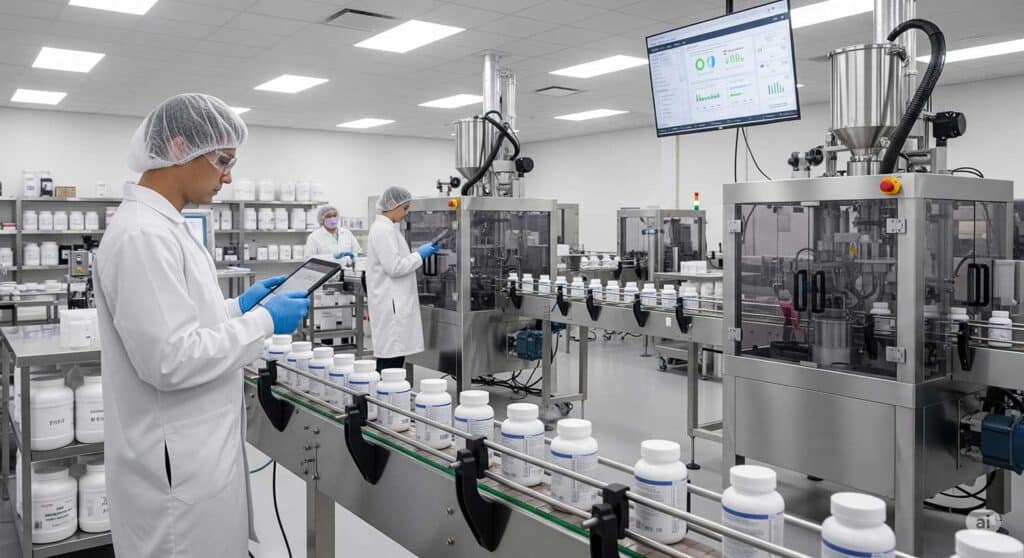
What to Look for in a Contract Manufacturer
Finding the right supplement manufacturing partner can make or break your efforts to scale supplement production. It’s not just about increasing your output—it’s about being sure that every bottle, capsule, or powder pouch keeps the same premium quality.
At Arnet Pharmaceutical, we recommend starting with the manufacturer’s certifications. For example, do they have Good Manufacturing Practices (GMP) certification? Are they NSF, FDA-registered, or ISO-certified? These credentials tell you they adhere to standardized procedures and maintain sanitary, well-organized facilities.
Next, consider their experience and reputation. Ask how long they’ve been in business and what types of supplements they specialize in—vitamins, herbal extracts, protein powders, etc. A company that regularly produces similar products will already understand the nuances of your formulations and the importance of quality.
Capacity is also key. A supplement manufacturer may produce excellent small batches, but can they handle large orders without compromising quality or deadlines? Make sure you’re clear about your projected volume and make sure they can accommodate both your current needs and future growth.
Lastly, evaluate their communication style and transparency. Do they keep you in the loop during every production stage? Are they on top of things in flagging potential issues? A solid manufacturer will act more like a partner than a vendor—someone genuinely invested in your success.
Vetting Quality Assurance Protocols
A quality assurance (QA) process isn’t optional—it’s the cornerstone of safe, effective, and compliant supplement production. Needed if you want to scale supplement production. As you vet manufacturers, dig deep into their QA procedures.
Do they test raw ingredients for purity and potency? Many poor-quality supplements fail because companies trust their ingredient suppliers without verifying them. A good manufacturer insists on third-party testing or in-house lab analysis before production begins.

You should also ask about in-process testing. Quality can’t be overlooked—it needs to be checked at each step, from blending to encapsulation to bottling.
Look for manufacturers who use validated procedures and maintain detailed batch records.
You should also ask about in-process testing. Quality can’t be overlooked—it needs to be checked at each step, from blending to encapsulation to bottling. Look for manufacturers who use validated procedures and maintain detailed batch records.
Post-production testing is another vital step. Does the manufacturer test the final product for contaminants, label accuracy, and shelf-life stability? Being consistent is everything, especially when ramping things up. Don’t skip this part because it will increase the risk of product recalls and legal issues.
Transparency is crucial. Ask to review QA reports, lab results, and Standard Operating Procedures (SOPs). If a manufacturer hesitates to share these, consider it a red flag. You really need a partner who takes pride in their QA systems and willingly demonstrates how they meet industry standards.
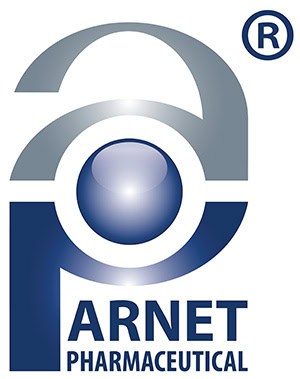
STARTING YOUR SUPPLEMENT BRAND?
Contact Us: tel: 800-968-6673 Or email us: info@arnetusa.com
Implementing Scalable Manufacturing Practices
Standard Operating Procedures (SOPs) for Consistency
As your supplement business grows, the key to maintaining product quality lies in standardized, repeatable processes. This is where robust SOPs become essential.
SOPs are step-by-step instructions that detail every task in the production process—from sourcing raw materials to packaging finished goods. When followed correctly, they ensure that your team or your manufacturer executes tasks uniformly every time, no matter how big your batches become.
To be effective, SOPs must be comprehensive yet easy to understand. Here at Arnet USA, we like to break down every stage into clear steps: cleaning procedures, mixing times, ingredient handling rules, packaging guidelines, and quality checks. Even employee hygiene protocols should be outlined in detail to avoid contamination risks.
Once written, SOPs should be rigorously trained and continuously updated. Don’t let them sit on a shelf collecting dust. Be sure to conduct regular training sessions and revisit procedures after introducing new equipment, formulations, or regulations.
Implementing SOPs not only protects your product quality but also helps with regulatory compliance. Agencies like the FDA expect documented procedures and consistent records. In the long run, SOPs reduce errors, improve efficiency, and provide the blueprint for replicating your success at scale.
Lean Manufacturing Techniques
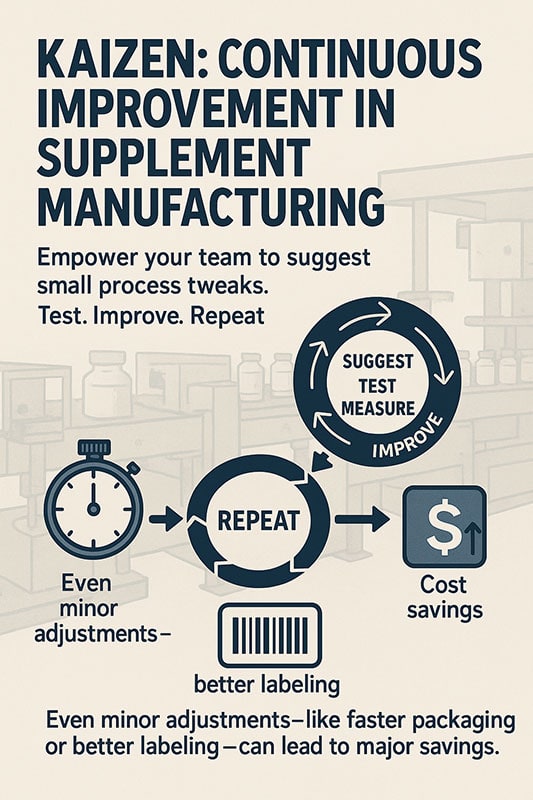
Lean manufacturing is all about doing more with less—maximizing productivity while minimizing waste. For supplement brands, it’s a practical philosophy to help scale supplement production operations without ballooning costs or sacrificing quality.
Start by identifying waste in your current process. Are there delays in sourcing ingredients? Are there unnecessary steps in production? Are employees standing idle, waiting for machinery to reset? Lean techniques focus on eliminating these inefficiencies through process improvements.
One of the best lean strategies is “5S”: Sort, Set in Order, Shine, Standardize, and Sustain. This approach organizes your workspace, streamlines tools and materials, and is a good way to be sure that everything is always in the right place at the right time. In a supplement facility, this could mean better ingredient storage, cleaner workstations, and more efficient workflow layouts.
Another key principle is “Kaizen,” or continuous improvement. Encourage your team to regularly suggest process tweaks, test improvements, and measure results. Even small changes—like reducing packaging time or standardizing labeling procedures—can lead to major time and cost savings at scale.
By embracing lean manufacturing, you don’t just scale—you scale smarter. You improve your bottom line while protecting the integrity of your products.
Investing in Technology and Automation
Role of Automation in Enhancing Efficiency
Automation is one of the most effcient and powerful way to scale your supplement production without losing control over quality.
From mixing ingredients to bottling and labeling, automated systems reduce human error and increase consistency across every batch.
Take the example of automated capsule fillers. These machines can fill thousands of capsules per hour with precise dosage control—far more accurately than a manual process. Likewise, automated packaging machines can seal, label, and sort products faster, reducing labor costs and improving turnaround time.
Automation also boosts safety and hygiene. We know automation limits the number of people who physically touch your ingredients, reducing contamination risk. Plus, they create more predictable outcomes, which is critical when you’re producing health-related products.
Scalability is another advantage. Once the system is set up, ramping up production doesn’t require a proportional increase in staff or overhead. A single machine might scale output five or tenfold without losing accuracy or requiring a major change in operations.
While the the start up cost of automation can be high, the long-term ROI is undeniable. Think of it as an investment in both growth and quality assurance. If you’re serious about scaling, automation isn’t optional—it’s essential.
Software Tools for Quality Control and Inventory Management
Growing your supplement business without smart software is like driving blindfolded. Things like managing raw ingredients, monitoring production lines, or tracking quality data, the right software tools make all the difference.
If you want to scale supplement production, a management system (IMS) can help you keep tabs on raw materials, packaging supplies, and finished goods. You’ll know exactly what’s in stock, what needs ordering, and when shipments are due. This prevents costly stockouts and over-ordering, both of which disrupt scaling.
A suggestion for you is to consider software that automates batch tracking and quality audits. Platforms like these store real-time data from production, flag anomalies, and maintain detailed compliance records.
When and if a problem arises, you can trace it back to the source instantly—a must-have feature in a highly regulated industry.
Enterprise Resource Planning (ERP) systems tie it all together, integrating inventory, production, logistics, and accounting. It’s a comprehensive way to manage growth and ensure quality, even across multiple facilities.
In short, software streamlines the backend so you can focus on strategy. It turns guesswork into data-driven decisions, making your scaling efforts more efficient, consistent, and compliant.
Maintaining Rigorous Quality Control During Growth
Developing a Robust Quality Management System (QMS)
As you scale your supplement production, one of the most critical components to maintaining quality is implementing a Quality Management System (QMS). Think of a QMS as your company’s immune system—it protects against inconsistencies, errors, and potential product failures that could severely damage your reputation.
A QMS is more than just a checklist; it’s a complete ecosystem of processes, documents, audits, and reviews that ensure every step of your supplement production meets established quality standards. It starts with clearly defined quality objectives—such as product purity, label accuracy, and batch-to-batch consistency. These objectives then guide every function within your organization.
Here at Arnet Pharmaceutical, we know document control is vital within a QMS. Every SOP, formulation, ingredient spec, and process audit should be centralized, version-controlled, and regularly reviewed. Digital QMS platforms like MasterControl or Greenlight Guru make it easier to manage these documents, automate workflows, and ensure compliance with industry regulations like FDA 21 CFR Part 111.
The beauty of a well-structured QMS is that it enables consistent scaling. As production increases, your team won’t have to reinvent the wheel for every new batch or process. Instead, they’ll follow a proven, repeatable system that produces the same high-quality results—every time.
In addition, your QMS should include mechanisms for continual improvement. Use tools like root cause analysis and CAPA (Corrective and Preventive Actions) to resolve issues at the source and prevent recurrence. This makes your business more agile and adaptable, which is essential for scaling successfully.
Regular Audits and Compliance Checks (Internal)
Even the best systems require oversight. Regular internal audits and third-party compliance checks are essential to maintaining quality as your supplement business grows. These checks verify that your processes, documentation, and outcomes align with both internal standards and external regulatory requirements.
Internal audits help you identify gaps before they become major problems. Schedule audits quarterly or semi-annually, and cover every stage of production—from ingredient sourcing to packaging and distribution. These audits should evaluate SOP compliance, employee training, hygiene protocols, equipment calibration, and more.
External audits are also critical. Industry certifications like GMP or NSF require periodic inspections by third-party auditors. Rather than dreading these reviews, use them as opportunities to validate your operations and strengthen your reputation. If you’re working with a contract manufacturer, demand regular audit reports to ensure they maintain the same high standards.
Audit findings should always lead to actionable insights. Document any non-conformities, assign responsibility for resolution, and follow through on corrective actions. This audit-to-action cycle keeps your business in a state of continuous quality improvement.
Audits are more than just a checkbox—they’re a reflection of your company’s commitment to quality. They instill confidence in your team, your partners, and most importantly, your customers.

STARTING YOUR SUPPLEMENT BRAND?
Contact Us: tel: 800-968-6673 Or email us: info@arnetusa.com
Strengthening Supply Chain and Ingredient Sourcing
Building Relationships with Reputable Suppliers
You can’t make a premium supplement with subpar ingredients. As your business scales, securing high-quality raw materials becomes even more important—and often more challenging. That’s why strong supplier relationships are one of the most valuable assets in your production strategy.
Start by vetting potential suppliers with the same scrutiny you’d use for a manufacturer. Look for partners who provide detailed Certificates of Analysis (COAs), follow GMP guidelines, and offer full traceability of ingredients. A transparent supply chain ensures you always know where your ingredients come from and how they were processed.
Once you find a trustworthy supplier, nurture that relationship. Build long-term contracts that offer pricing stability and priority access to materials, even during supply chain disruptions. Regular communication, scheduled check-ins, and collaborative planning sessions help keep the partnership strong and mutually beneficial.
Diversification is also wise. Relying on a single supplier puts your production at risk if they face delays, shortages, or quality issues. Establish backup suppliers and maintain relationships with multiple sources for critical ingredients.
Finally, treat your suppliers like part of your team. When they understand your goals, your timelines, and your quality expectations, they’re more likely to go the extra mile to help you succeed.
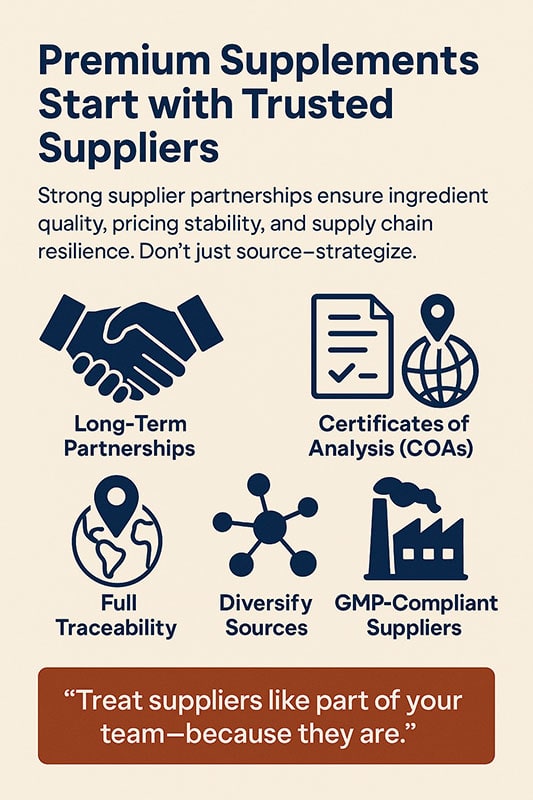
Ensuring Ingredient Quality and Traceability
Ingredient quality is the foundation of your supplement’s effectiveness—and your brand’s credibility. That’s why traceability is no longer a luxury; it’s a necessity. As you scale production, the ability to track every ingredient from farm to formulation is essential for quality assurance and regulatory compliance.
Begin with documentation. Require COAs for every batch of raw material. These should confirm not just the ingredient’s identity and potency but also the absence of contaminants like heavy metals, pesticides, or microbial pathogens.
Next, implement a batch tracking system. This allows you to trace every capsule, powder, or bottle back to the specific lot of raw material used in its production. If a quality issue ever arises, you can isolate and recall affected products quickly, rather than halting your entire operation.
Traceability also builds consumer trust. More and more customers want to know where their supplements come from. When you can proudly display the origin and testing history of your ingredients, it sets your brand apart in a crowded market.
Technology can help. Tools like blockchain-based supply chain software and QR-code product tracking allow for end-to-end visibility, giving you control and transparency at every stage of production.
In short, ingredient traceability isn’t just a compliance box—it’s a strategic advantage that enables safe, reliable, and scalable growth.
Training and Managing Your Workforce for Quality at Scale
Hiring the Right Team for Scaled Operations
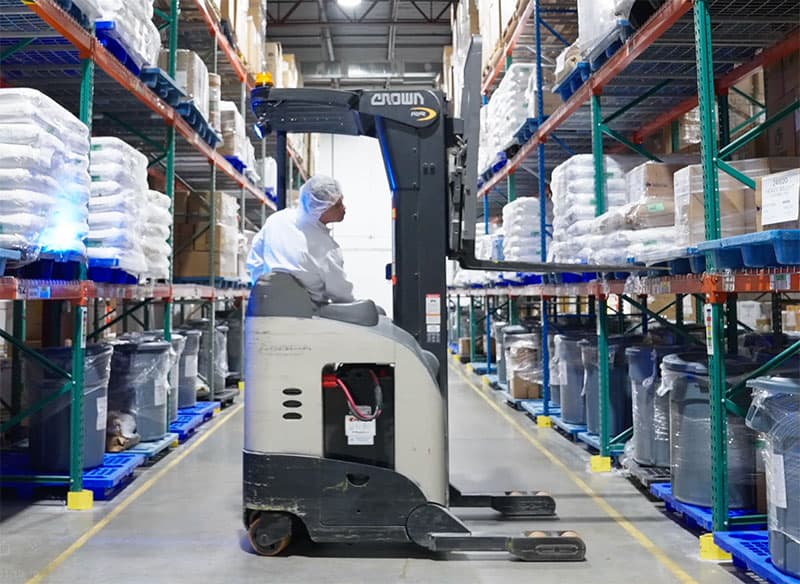
To scale supplement production isn’t just about better machines or bigger warehouses—it’s about people. The team you build plays a considerable role in maintaining quality as your operations grow. That’s why hiring the right talent is one of the smartest investments you can make.
Start by identifying the roles that need to be scaled. Production technicians, quality control analysts, warehouse staff, operations managers—each position should be filled by individuals who understand your mission and value precision and consistency.
During hiring, look beyond resumes. Ask scenario-based questions that test a candidate’s problem-solving ability and attention to detail. For quality assurance roles, quiz them on SOPs, GMP regulations, and quality control protocols. For production roles, assess their familiarity with manufacturing equipment and hygiene standards.
Once hired, thoroughly onboard your team. Provide hands-on training, walk them through your SOPs, and explain the “why” behind each procedure. When employees understand the impact of their work, they’re more likely to follow protocols diligently.
As your business grows, so should your leadership structure. Introduce supervisors who can oversee day-to-day operations and ensure compliance on the floor. Good leadership helps maintain accountability and consistency—even under pressure.
Continuous Training and Performance Monitoring To Scale Supplement Production
Hiring the right team is only the first step—training and development are what keep quality high over time. In a scaled production environment, continuous training ensures that everyone stays sharp, informed, and aligned with evolving best practices.
Schedule recurring training sessions on topics like GMP compliance, equipment handling, hygiene practices, and emergency procedures. Remember to update training materials routinely to show new regulations, equipment upgrades, or process improvements.
Use real-world data to guide training. For example, if audits reveal repeated packaging errors, retrain the team on labeling SOPs. If a batch fails quality testing, use it as a case study to prevent future issues.
Performance monitoring is also key.
Develop KPIs (Key Performance Indicators) tied to quality metrics—like error rates, compliance scores, or output efficiency. Use these to recognize top performers, identify areas for coaching, and motivate continuous improvement.
Remember, your workforce isn’t just an expense—it’s an engine of quality. When properly trained and empowered, your team becomes one of your greatest assets in scaling without sacrificing the standards that define your brand.
Navigating Regulatory Compliance While Scaling Supplement Production
Understanding FDA, GMP, and International Standards
To scale supplement production doesn’t just mean more products—it means more scrutiny. The bigger you get, the more attention you’ll attract from regulators like the FDA and international agencies. If you want to scale successfully and sustainably, regulatory compliance has to be at the heart of your operation.
In the U.S., dietary supplements are regulated under the Dietary Supplement Health and Education Act (DSHEA). A law mandates that your products must be safe, labeled truthfully, and manufactured under Good Manufacturing Practices (GMP).
GMP guidelines, outlined in 21 CFR Part 111, cover everything from personnel training to equipment cleaning to ingredient traceability.
Learning more about FDA guidelines, if you’re selling internationally, you must also meet country-specific requirements.
Such as, Canada requires licensing through Health Canada, while the EU demands compliance with EFSA (European Food Safety Authority) standards.
These larger markets may require additional testing, different labeling, or even reformulation.
As you scale, consider working with a regulatory consultant or full-time compliance officer. They’ll keep you up to speed on changing rules, guide you through audits, and help ensure every product you sell—domestically or globally—meets all legal standards.
Keep detailed records of every aspect of production: sourcing, testing, manufacturing, and distribution. If authorities ever question you, thorough documentation can mean the difference between a smooth inspection and a product recall.
Regulatory compliance isn’t just about avoiding fines—it’s about building a brand customers can trust. When your quality standards meet or exceed the law, it shows consumers you’re serious about their health and safety.
Preparing for Regulatory Audits at Scale
Audit proof is an integral part of scaling your supplement business. Whether it’s an FDA inspection, a GMP certification audit, or a partner-led quality review, being prepared ensures that your growth doesn’t get derailed by regulatory roadblocks.
Start with documentation. Auditors want to see written SOPs, batch records, test results, and training logs. Store these in a secure, easy-to-navigate system—preferably digital—and make sure every document is updated and version-controlled.
Next, conduct mock audits. Walk through your facility with a critical eye (or hire a consultant to do it for you). Inspect for compliance with GMP, FDA, and OSHA standards. Are your employees following hygiene protocols? Are ingredients appropriately stored? Are logs filled out consistently?
Train your staff on how to respond during an audit. Everyone—from floor workers to quality managers—should know their role, understand the protocols, and be ready to answer questions calmly and confidently. A single misstatement or missing record can trigger deeper investigations or even product holds.
Finally, after each real or mock audit, take these corrective actions. Whether it’s retraining staff, revising procedures, or updating documentation, treat every finding as a chance to improve.
Scaling without audit readiness is like building a mansion on sand. Regulatory compliance provides the foundation for sustainable, long-term growth—and proves you’re serious about quality.
Forecasting, Planning, and Adapting for Growth
Demand Forecasting and Production Planning
You can’t scale supplement production effectively without knowing what’s coming down the pipeline. Demand forecasting helps you predict how much product you’ll need—and when—so you can plan accordingly without overproducing or underdelivering.
Use historical sales data, market trends, and seasonal patterns to anticipate future demand. Are there peak seasons (e.g., New Year’s resolutions, flu season) where certain supplements sell more? Do you have upcoming marketing campaigns or retail partnerships that could spike orders?
Once you forecast demand, align your production planning to match. Work backward from your deadlines: How long does it take to order ingredients, prep materials, manufacture, test, and ship? Build in buffer time for delays, especially with suppliers or international shipping.
Production planning also involves cash flow. How much working capital will you need for larger ingredient orders, labor costs, or equipment upgrades? Without a solid financial plan, scaling can lead to cash crunches—even if demand is high.
Prepare forecasting software or ERP systems that connect your sales, inventory, and production teams. This visibility helps ensure everyone is on the same page and ready to scale without chaos.
Staying Agile in a Rapidly Changing Market
The supplement industry changes quickly. If you want to scale supplement production, stay informed about new trends, shifting consumer behavior, and evolving regulations, which can alter even the best-laid plans. That’s why the ability to change is so important. Quickly is crucial when you’re growing your supplement production.
Stay on top of trends. Are consumers demanding new formats, such as gummies or powders? Are plant-based or nootropic supplements gaining momentum? Being first to market with innovative products can give you a competitive edge—but only if you can scale quickly without compromising quality.
Create a flexible production process. Modular equipment, multi-use lines, and quick-changeover systems enable you to switch between products more quickly. This responsiveness keeps your business relevant without adding excessive costs.
1. Maintain strong relationships with your suppliers and manufacturers.
If you need to adjust a formulation or rush a batch, having strong partners who understand your business makes all the difference.
2. Stay on top of customer feedback.
Online reviews, surveys, and social media comments offer valuable insight into what’s working—and what needs improvement. Use this data to refine your formulas, enhance your packaging, or optimize your delivery process.
3. In a changing industry, staying still is falling behind.
Scaling isn’t just about growing bigger—it’s about staying nimble, responsive, and ready for whatever the market throws your way.

STARTING YOUR SUPPLEMENT BRAND?
Contact Us: tel: 800-968-6673 Or email us: info@arnetusa.com
Conclusion
Scaling your supplement production is an exciting step—but it’s not one to take lightly. Quality is important in every phase of growth. From choosing the right manufacturing partner to implementing automation, enforcing rigorous QA protocols, and staying audit-ready, each component is a building block for a brand that scales without sacrificing its soul.
At Arnet Pharmaceutical, we know that every choice you make either strengthens or weakens your commitment to excellence. And in a market where customers are increasingly demanding, quality isn’t just a nice-to-have—it’s your greatest competitive advantage.
Grow smart and clean. And most importantly, grow with purpose. Because when you scale with quality at the forefront, you’re not just expanding your business—you’re elevating your brand. Don’t hesitate to get in touch with us for your next supplement product!
FAQs
What are the most important certifications for a supplement manufacturer to have?
GMP certification is essential, followed by FDA registration, NSF certification, and potentially ISO standards. These ensure your manufacturer follows strict quality, safety, and sanitation protocols.
2. How can I automate supplement production without losing quality?
Use high-precision machines for capsule filling, packaging, and labeling. Integrate software for inventory, QC tracking, and batch management to maintain consistency and accuracy.
3. What steps should I take to ensure ingredient traceability?
Request detailed COAs, implement a batch tracking system, and ensure each ingredient can be traced from source to shelf. Blockchain systems can also add extra layers of transparency.
4. How do I prepare for an FDA inspection?
Maintain updated SOPs, batch records, and training logs. Conduct mock audits, train staff on audit procedures, and resolve any gaps in compliance beforehand.
5. How can I stay ahead of trends in the supplement market while you scale supplement production
Monitor consumer behavior, subscribe to industry newsletters, attend trade shows, and maintain agility in your production process to pivot quickly when trends shift.